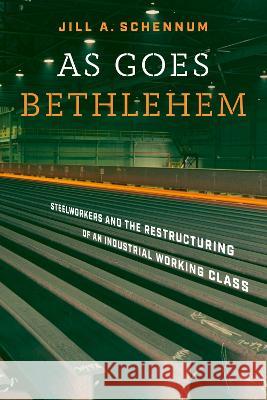As Goes Bethlehem: Steelworkers and the Restructuring of an Industrial Working Class » książka
As Goes Bethlehem: Steelworkers and the Restructuring of an Industrial Working Class
ISBN-13: 9780826505880 / Angielski
As Goes Bethlehem: Steelworkers and the Restructuring of an Industrial Working Class
ISBN-13: 9780826505880 / Angielski
(netto: 211,26 VAT: 5%)
Najniższa cena z 30 dni: 182,87
ok. 16-18 dni roboczych.
Darmowa dostawa!
The steel industry had a central role in building post WW II economic success in the U.S. and in defining the parameters of the post WW II social contract, as well as in deconstructing those. As American workers lost their jobs, as a result of these long term processes both preceding and contributing to the Great Recession, a new capitalism in which banks and the credit system took precedence over industrial production changed the lives of many American workers, including steelworkers. The book raises important questions about why workers and their unions were not able to successfully contest this attack on industrial labor, instead settling for best navigating a long downward trajectory. Through the experiences and reflections of steelworkers, Jill Schennum demonstrates the significance of work, and particularly of industrial work, in giving meaning to people’s lives, identities, and sense of worth. The importance of work space, time and social relations understood through workers’ narratives and voices belies dominant interpretations of blue collar workers as alienated from their work, but well-paid and coopted by a middle-class standard of living. She covers 35 years of investment and disinvestment, managerial initiatives, transfer decisions, layoffs and downsizings, external transfers, the eventual bankruptcy of the Bethlehem Steel Corporation, and movement into retirement, unemployment, and new post industrial jobs. The very solidarities, rights of citizenship, and rule of law forged in the mill and built on by the union were constructed, in part, through exclusions of race, ethnicity, gender, and region. These lines of fracture were mobilized to undermine working class strength in the post-industrial period. Through the experiences of African American, Puerto Rican, coal country, and women workers in the steel mills, these issues – of both fracture and solidarities – are explored.











